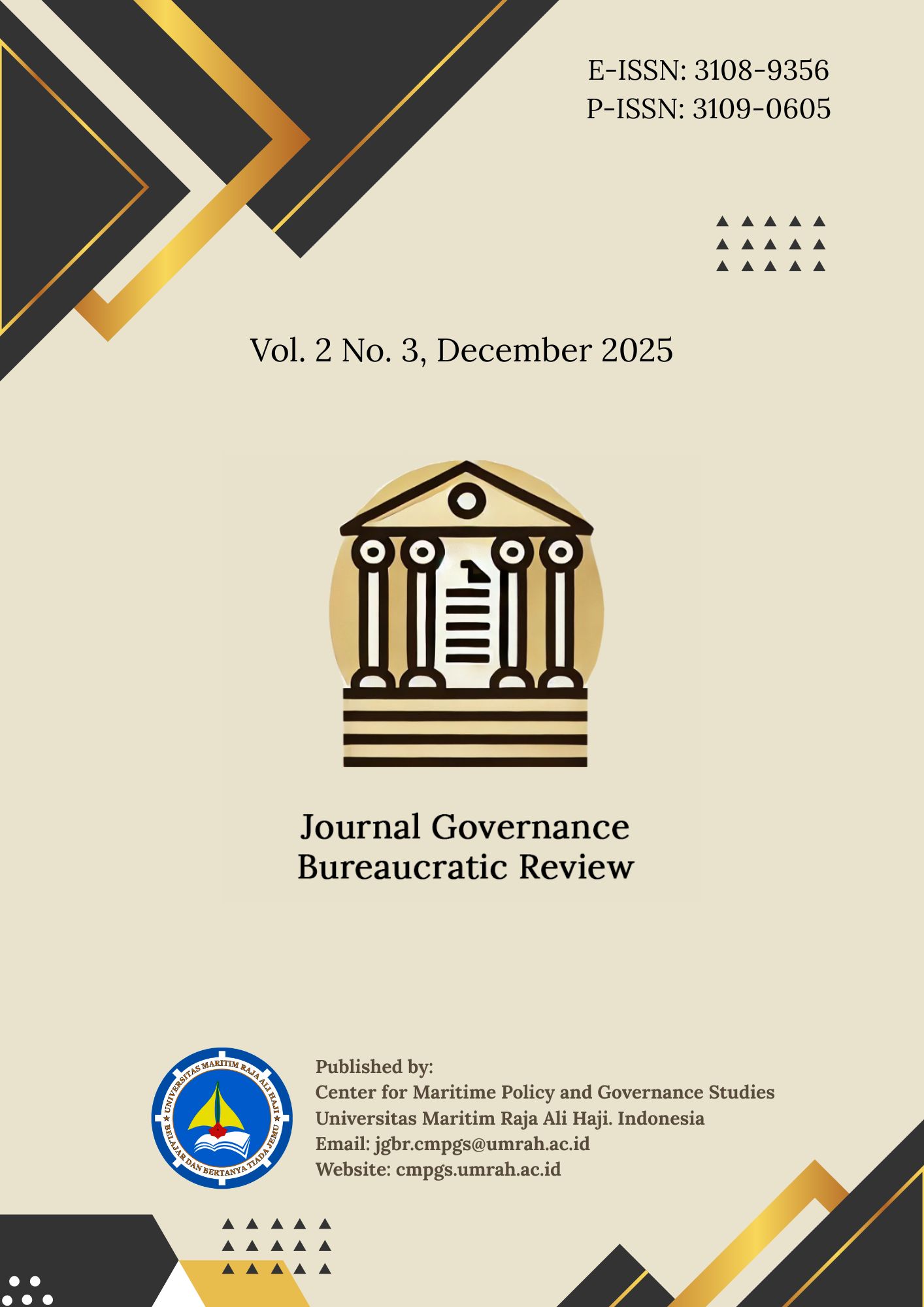COVER JOURNAL

TABLE OF CONTENT
TOOLS
CITATION ANALYSIS
ISSN BARCODE


VISITORS
IN COORPORATION WITH


KEYWORDS

The first article, Policy Direction for Strengthening Accountability and Transparency in the Management of Direct Grant Receipts at BMKG, by Syafridawati Syafridawati, highlights the need to strengthen accountability and transparency in managing direct grant receipts at BMKG. It emphasizes policy directions that can improve administrative compliance, clarify reporting mechanisms, and reinforce oversight so that grant management becomes more orderly and defensible. The second article, Strategic SWOT Analysis of Municipal Solid Waste Management and Waste Bank System in Bandung City; Toward a Circular and Sustainable Urban Future, by Rita Margaretha, examines municipal solid waste management and the waste bank system in Bandung using a SWOT framework. The study maps strengths, weaknesses, opportunities, and threats to formulate strategies toward a circular economy and a more sustainable urban future through stronger institutions, citizen participation, and improved governance of waste services. The third article, Optimizing Policies for the Distribution of Social Assistance (BANSOS) and Direct Cash Transfers (BLT) to Ensure Targeting Accuracy and Improve Economic Welfare, by Fiqi Restu Subekti and Noni Kensiwi, addresses persistent problems of targeting accuracy in social assistance and cash transfer programs. The fourth article, Data and Technology Based Bureaucratic Governance Innovations: A Model for Strengthening Institutional Quality in Public Sector Reform in Indonesia, by Muhammad Distian Andi Hermawan, proposes a model of bureaucratic governance innovation based on data and technology to strengthen institutional quality within Indonesia’s public sector reform agenda. It underscores process digitalization, evidence-based decision-making, and service modernization as foundations for improving performance, integrity, and institutional responsiveness. The final article, Transforming Governance to Implementation Foreign Loan-Funded Activities in BMKG for Good Governance, by Yusuf Fadhoni, reviews governance transformation in the implementation of BMKG activities funded by foreign loans. The study emphasizes strengthening good governance principles through more accountable planning, risk management, cross-unit coordination, and transparent implementation so that external financing produces effective and credible program outputs.
Enjoy Reading!!
Journal Governance Bureaucratic Review This work is licensed under
a Creative Commons Attribution-ShareAlike 4.0 International License![]()
Published by:
Center for Maritime Policy and Governance Studies. Universitas Maritim Raja Ali Haji. Indonesia
Email: cmpgs@umrah.ac.id | Website: cmpgs.umrah.ac.id
